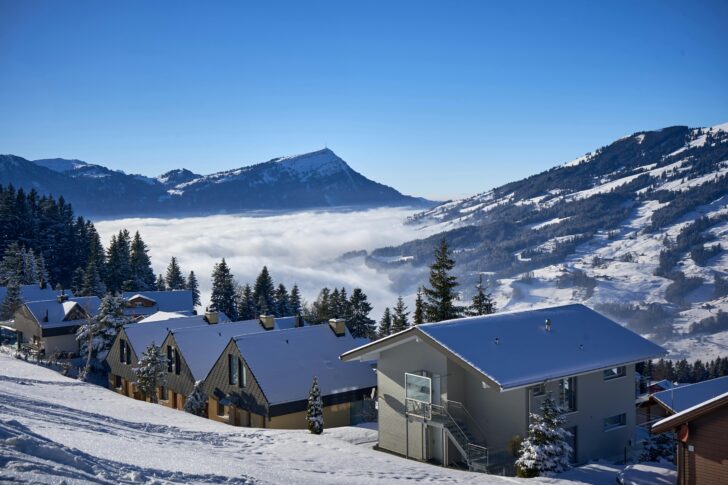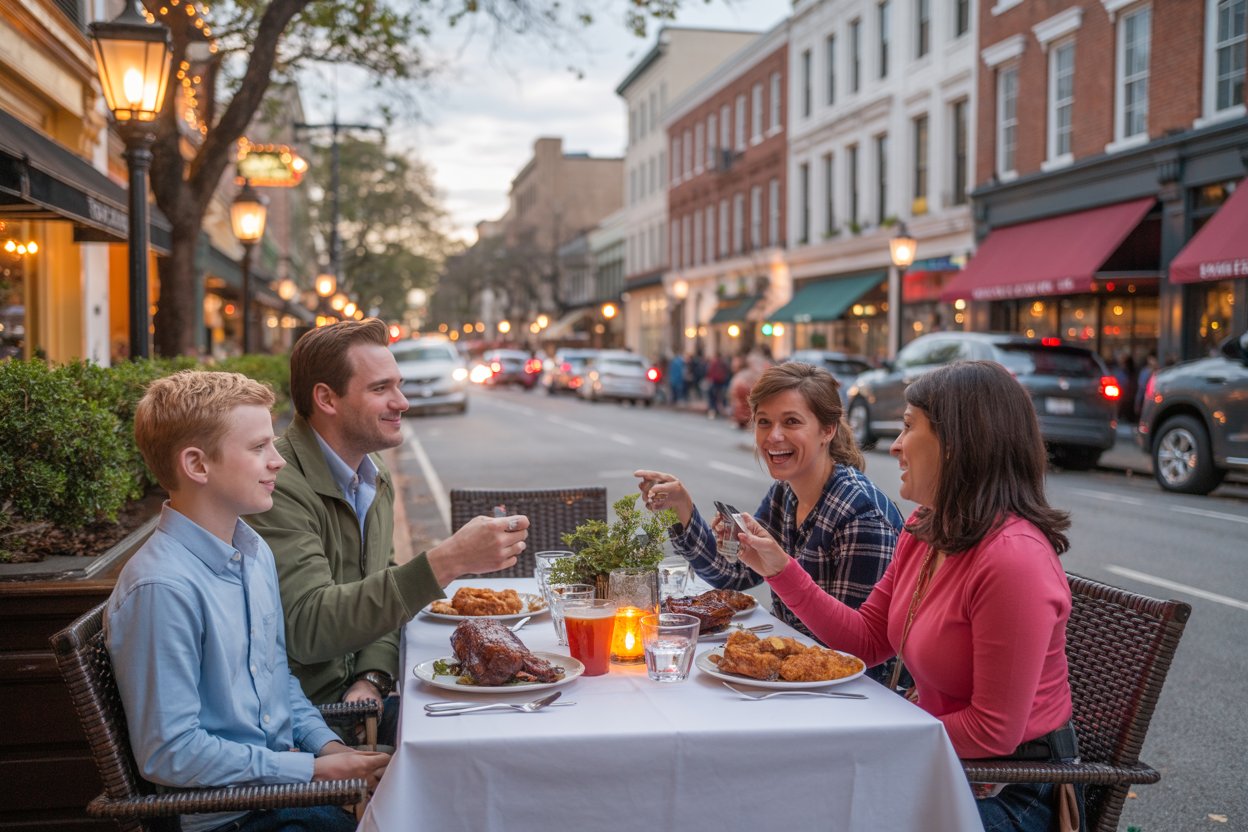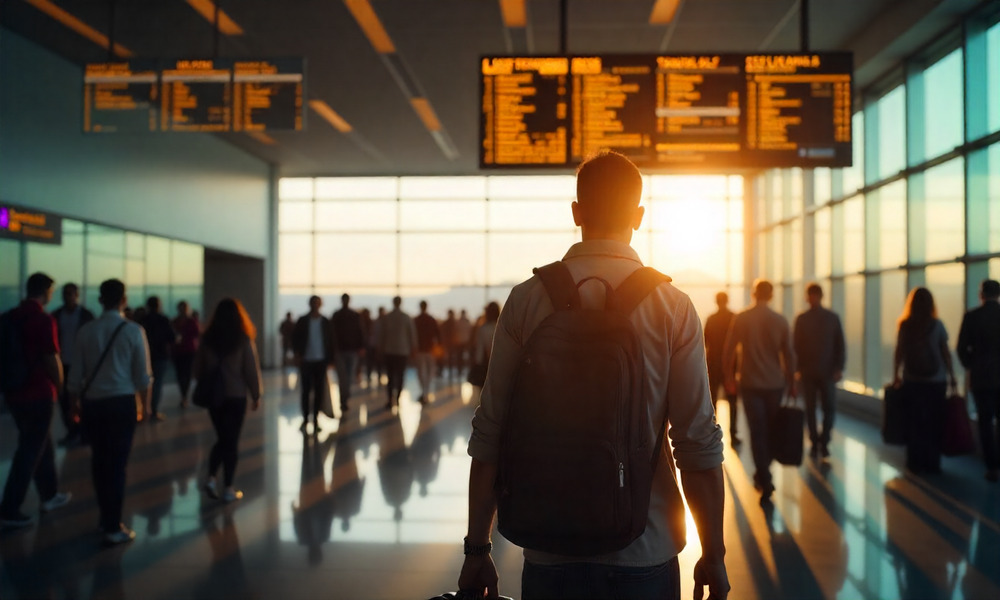Staying Warm, Smart, and Well-Hosted

Winter travel can show you a completely different side of your favorite destinations.
You can enjoy quieter streets, snow-covered scenery, and warm evenings indoors.
But it also comes with a few different challenges.
Roads can get icy, the weather can shift fast, and shorter days mean less daylight for exploring.
That’s why planning and staying safe are crucial.
If you know what to expect and prepare properly, you can enjoy winter travel to the fullest.
Choosing the Right Destination
When you’re planning a winter getaway, one of the most important things is to choose the destination wisely.
Not every place is prepared for snow, ice, or freezing temperatures, so it helps to pick places that are used to winter conditions.
Look for regions with reliable infrastructure: good public transport, plowed roads, and accommodations that know how to keep guests warm and safe.
Mountain towns, ski resorts, and well-known winter destinations often have systems in place to handle storms and icy weather smoothly.
It’s best to avoid isolated or hard-to-reach spots during the winter months, especially if the forecast looks rough.
Before you head out, check local forecasts and travel advisories.
Weather can change fast, and knowing what’s ahead can help you pack the right gear or adjust your route if needed.
Booking Smart: Safe and Warm Accommodation
When it comes to winter travel, where you stay can make or break your trip.
The right accommodation isn’t just about comfort, it’s also about safety and warmth.
When you’re booking, look for places that clearly mention good heating, proper insulation, and easy access to main roads.
It’s also worth checking that your lodging has a reliable emergency contact or on-site staff available in case something goes wrong.
It is better if someone’s there to help if the power goes out or the pipes freeze.
Before confirming your booking, read some of the recent guest reviews.
Look for details about heating quality and how responsive the hosts were.
If you’re planning a winter trip, you can use Villapicker to compare options in one place.
It makes it easy to find stays that aren’t just convenient but also practical for the season: mountain chalets or countryside cottages that stay warm when the temperature drops.
Staying Warm and Prepared on the Road
When you’re traveling in winter, staying warm and prepared can make all the difference between a cozy adventure and a miserable day out.
Clothing
Start with smart clothing: layering is key.
A good base layer keeps moisture away from your skin, a warm middle layer traps heat, and a waterproof outer shell protects you from wind and snow.
Don’t forget insulated gloves, a hat that covers your ears, and sturdy waterproof boots with solid traction.
It’s amazing how much warmer you feel when your feet and hands stay dry.
Emergency
Before you hit the road, pack a small emergency kit.
Even short drives can take longer than expected in bad weather, and it’s better to be overprepared than stuck and cold.
Keep blankets, snacks, a flashlight, and a first-aid kit in your car.
A portable phone charger and an ice scraper are also must-haves.
If you’re traveling somewhere remote or at higher elevations, toss in a shovel and some sand or cat litter for traction in case you get stuck.
Driving
When it comes to driving, slow and steady wins.
Leave extra space between cars, avoid sudden braking, and always clear snow off your roof and headlights before starting.
Make sure your car has winter tires and that snow chains are packed in the trunk.
And the most important: if the weather looks too rough, don’t push it. Sometimes the safest decision is to wait it out.
Health and Safety Tips for Cold Weather
Cold weather can be beautiful, but it can also sneak up on you fast if you’re not careful.
Knowing how to recognize and prevent cold-related illnesses like hypothermia or frostbite is essential for safe winter travel.
Recognizing Hypothermia
Hypothermia starts when your body loses heat faster than it can produce it.
Early signs include shivering, confusion, and clumsiness.
If you notice these symptoms in yourself or someone you’re with, get to a warm place right away, remove wet clothing, and sip something warm (strictly avoid alcohol).
Recognizing Frostbite
Frostbite, on the other hand, affects your skin directly: fingers, toes, ears, and nose are the most vulnerable.
If your skin feels numb or looks pale and waxy, warm it up gently, not by rubbing, but by placing those areas against warm skin or using lukewarm water.
Food and Drink
It’s also easy to forget about eating and drinking when it’s cold out, but staying fueled helps your body generate heat.
We burn more energy in the cold, so pack snacks high in carbs and protein (nuts, granola, or jerky are perfect options).
And even though you might not feel thirsty, dehydration still happens in winter.
Keep a bottle of water handy and take small sips regularly.
Before heading out, make sure your phone is fully charged and carry a portable power bank.
In remote or snowy areas, it’s smart to let someone know your plans (where you’re going, when you expect to be back, and what route you’re taking).
That small step can make a huge difference if weather conditions change or you run into trouble.
Travel Insurance and Emergency Planning
Make sure you’ve got the right travel insurance.
Not all policies automatically cover winter-related issues, so it’s worth double-checking the details before you book.
You want to make sure you’re protected if your flight gets delayed by a snowstorm, your rental car slides into a ditch, or your ski trip gets cut short due to icy conditions.
Look for coverage that includes trip cancellations, weather-related interruptions, and medical emergencies caused by cold or outdoor activities.
It’s also smart to get familiar with local emergency contacts before you arrive.
In Europe, the universal emergency number is 112; in the US, it is 911, but in other parts of the world, it may vary.
Winter travel is fun, but takes a little extra planning.
When you stay alert, pack smart, and choose the right place to stay, you can enjoy everything the season has to offer without worries.
link







